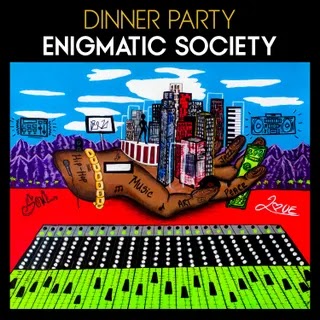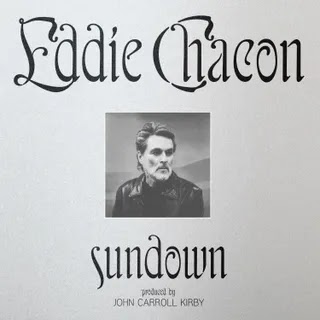After rediscovering her creative spark, Nao turns her organic-sounding third album into a kaleidoscopic testament to the pains and pleasures of modern love and the healing process they inspire.
Nao’s voice glows even in her darkest moments, warm and radiant as a sparkle of fireflies in a mason jar. Since her breakout 2016 album For All We Know, that voice has channeled love and affection in nearly all its forms: love of self, love for your parents, every stage of romance from intoxicating first contact to awkward break-ups. Sometimes, relationships are redefined on songs like Know’s “In The Morning” or altogether broken on “Make It Out Alive,” a single from her second album, 2018’s astrology-themed Saturn. Regardless, Nao’s ear for the blend of R&B, UK garage, and soul she prefers sweetens whatever sour grapes there might be with the precision and power expected of an artist who grew up listening to both Jill Scott and Burial.
Though by no means a bleak album, Saturn showcased more of Nao’s emotional scars than before. She was cynical without being weary, bruised but always ready to give love another go. And Then Life Was Beautiful, her third studio album, addresses many of the same topics with a sharpened confidence. The album was recorded after a creative dry spell was ended by the birth of her daughter during the early stages of the pandemic, a process she called “healing” during a recent interview with The Independent: “I loved that I had something to focus on...It lit a fire in me.” Nao’s rejuvenation has refined her focus even further, reaching bolder points with fewer words against a more varied sonic palette. At its best, Beautiful is a kaleidoscopic testament to the pains and pleasures of modern love and the healing process they inspire.
The synthetic beats and vocal distortion that drove her trademark “wonky funk” sound in the past are largely absent from Beautiful. Nao’s music has always been full-bodied and percussive but live arrangements dominate these songs, giving the album an explicitly organic feel. The thumping kick-drum, guitar plunks, and vinyl crackle of “Messy Love” and “Glad That You’re Gone” recall turn-of-the-century neo-soul and hip-hop, while “Little Giants” soars on swelling piano and backing vocals. When synths and distortion do appear, they’re pit stops, temporary reminders of what came before. The album’s handful of producers, including longtime collaborators like LOXE and Grades and fresh faces like D’Mile and Sarz, cast a wider musical net and use afrobeats, chamber music, and gospel influences to create a lush and sunny atmosphere.
This variety breathes new life into Nao’s transmissions from the front lines of love. On “Good Luck,” she’s no longer second-guessing dead-end relationships and is unafraid to transfer that energy to herself. “Glad That You’re Gone” is particularly cheeky, with Nao barely able to contain her excitement over leaving her soon-to-be ex: “Got my mouth grinning and I know that it’s wrong/I can’t help smiling either way/You’ve bounced, it’s blessed, I’m celebrating.” The feeling expressed in kiss-offs like “Gone” and the bouncy “Better Friend” are reinforced later by the closing track “Amazing Grace,” which ultimately finds solace in failure as a learning process. All of Nao’s conflicting thoughts and emotions—boredom, dread, confidence, happiness—are in conversation with each other, less isolated snapshots than photos on an ever-morphing mood board.
Nao’s self-assurance also manifests in her voice. Her vocals on “Antidote” are sly and effortless, and though Nao’s porcelain voice isn’t quite powerful enough to fully sell the ending crescendo of “Wait,” the acuity of its lyrics about a relationship on the rocks does the heavy lifting. “Tell me the truth even though it might kill me/We both know that we’re just wasting time/Tryna survive instead of just feeling,” she sings with a twinge of sadness. Compare that to the sunny anthem “Woman,” which is musically peppy and pleasing but lyrically anonymous; the line “I’m living in this magic place/It’s showing me that God’s a woman” reads like it was swiped from a Hallmark card. But even when the writing skews generic, Nao’s voice helps the words buzz like neon.
Throughout her career, Nao has treated uncertainty as a challenge. She’s confronted love as a one-day-at-a-time experience, decorating it at its best while attempting to salvage what she can from the worst. Excessive touring pre-pandemic drained her creative energy, but And Then Life Was Beautiful expands her musical range while deepening its emotional impact. Five years removed from her debut album, Nao’s older, wiser, and better equipped to deal with life’s emotional pitfalls. It isn’t a complete reinvention, and there are still a few awkward turns of phrase, but Beautiful is a big step on Nao’s path to self-actualization.
















0 comments:
Post a Comment